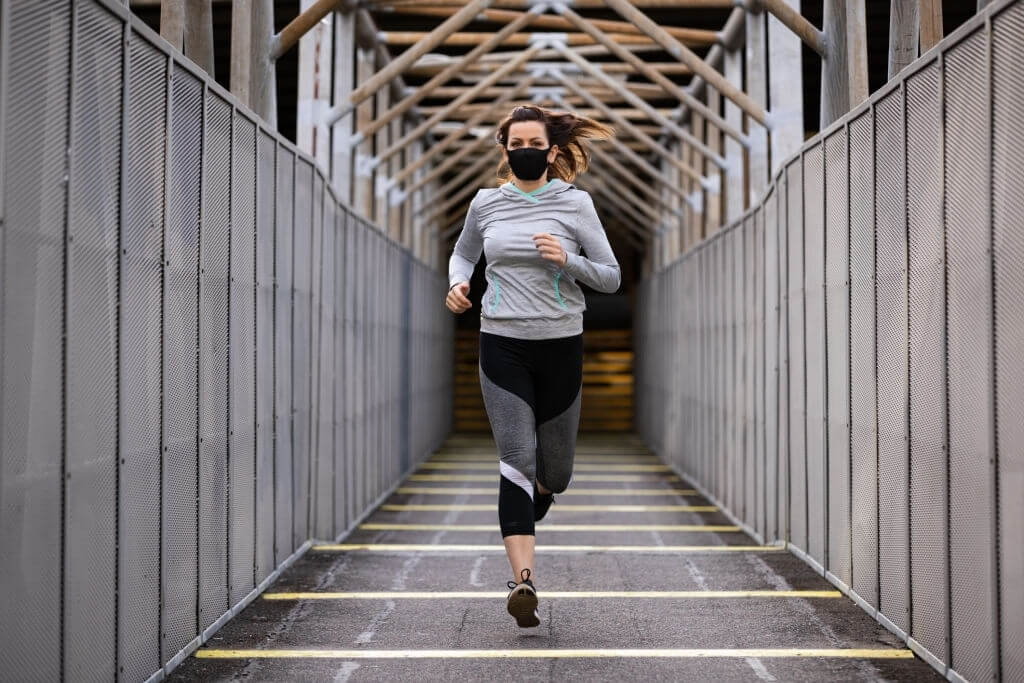During the first lockdown period of the COVID-19 pandemic, Kaiser Permanente researchers published a study in Preventive Medicine showing that exercising more helped reduce anxiety and depression. Furthermore, the study showed that spending more time outside was positively associated with less anxiety and depression than spending more time indoors.
The survey-based study included more than 20,000 people from six Kaiser Permanente service areas throughout the U.S., including Hawaii, Colorado, Georgia, the mid-Atlantic, and Southern, and Northern California.
According To A Study, Exercise Can Improve Mental Health
Though many people believe that physical exercise can have a direct impact on physical health and one can shape the body with it or control the overall body weight with the right type of exercise, however, a research group has checked the impact of exercise on one’s mind and found that physical exercise can also lead to a better state of mental health that can help one think stably and go for well-balanced decisions in routine life.

Study conclusions suggest that physical activity can help maintain physical and mental health, even during active pandemics, said study lead author Deborah Rohm Young, Ph.D., coordinator of Kaiser Permanente Southern California’s Division of Behavioral Research. During public health emergencies, it is important to continue to open parks and other natural areas.
It was understood that COVID-19 had become a global pandemic by March 2020. Because the disease was unknown, public health officials pursued stay-at-home policies to limit its spread.
As a result of the virus, businesses closed or changed their practices, which affected many people’s employment and the economy. People who suffer from these factors, as well as those who see fewer friends and family, often experience depression and anxiety.
Research conducted by Kaiser Permanente in Southern California assessed how people’s mental health was affected by physical activity and time spent outdoors during the height of the flu pandemic since exercise and outdoor time are associated with improved mental health.
COVID-19 surveys will be sent to more than 250,000 Kaiser Permanente members in April 2020 as part of Kaiser Permanente’s Research Bank. The bank includes lifestyle surveys, EHR data, and biospecimens donated by the Kaiser Permanente members.
Twenty-one thousand twelve respondents were not included in this analysis because they reported symptoms of COVID-19. Each, between April and July 2020, completed at least four surveys. Every mental health professional should emphasize and reinforce the following benefits of regular exercise to their patients:
- A better night’s sleep
- The desire for sexual activities has increased
- Strengthening endurance
- De-stressing
- Mood improvement
- Stamina and energy increase
- Increased mental alertness by reducing tiredness
- Loss of weight
- Enhanced cardiovascular fitness and reduced cholesterol
Hence, those suffering from severe mental illnesses can benefit from physical activity interventions that are based on evidence.
More than half of the respondents were white women over the age of 50. The majority of respondents indicated they were retired and adhered to the order to stay at home during the survey period. According to the study:
- Depression and anxiety reported by respondents decreased over time.
- Asian and Black respondents scored lower on anxiety and depression than white respondents, while females and younger respondents scored higher.
- Compared to people who exercised, people who did not engage in physical activity showed the most depression and anxiety.
- depression and anxiety scores increased when spending less time outdoors
- Anxiety scores were highest in those spending the most time outdoors, but that was not explained by the research.
Dr. Young explained that the findings show it will be important to carefully consider the mental health impact of closing parks and outdoor areas during future emergencies.